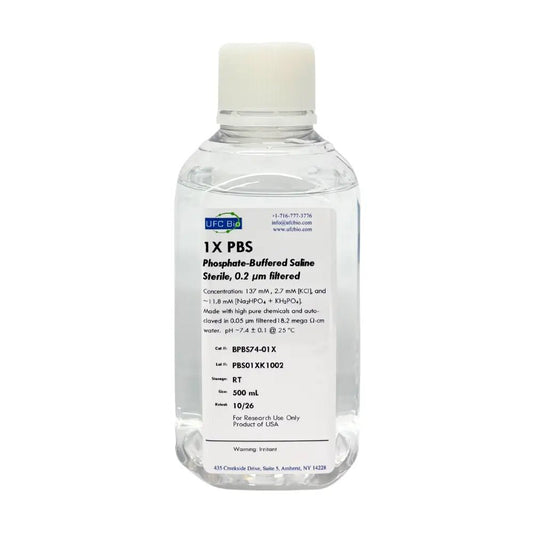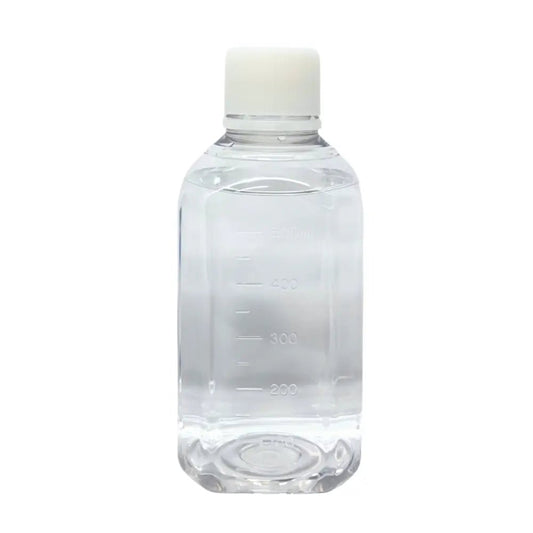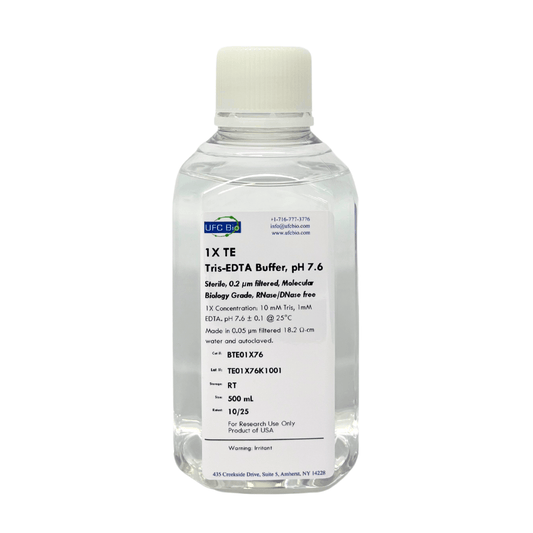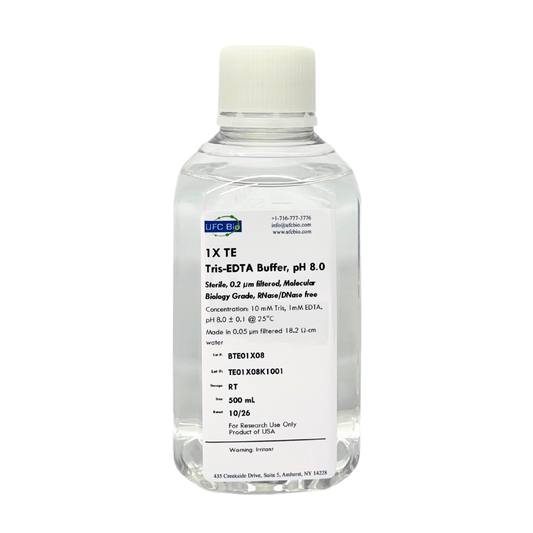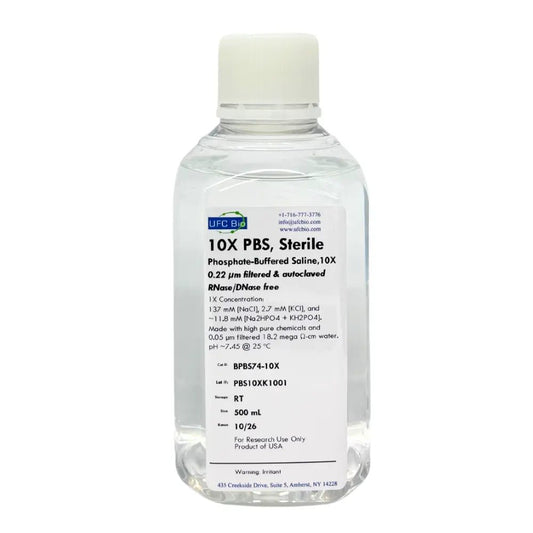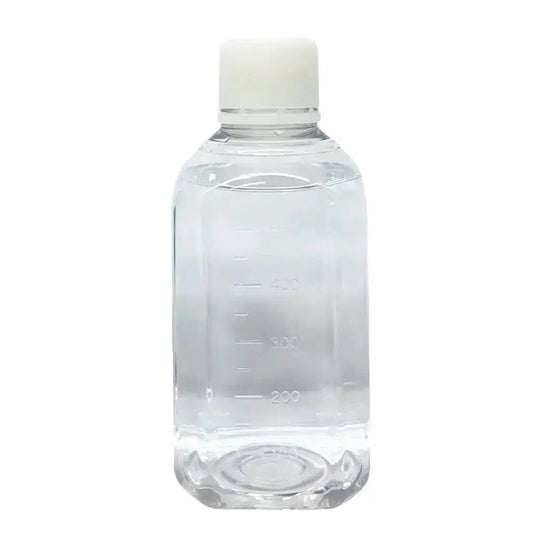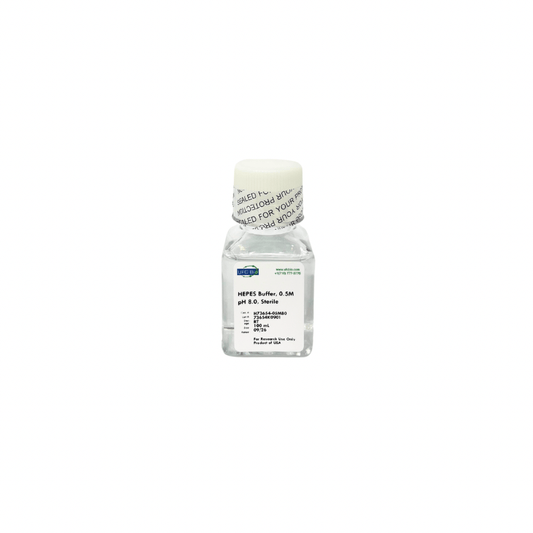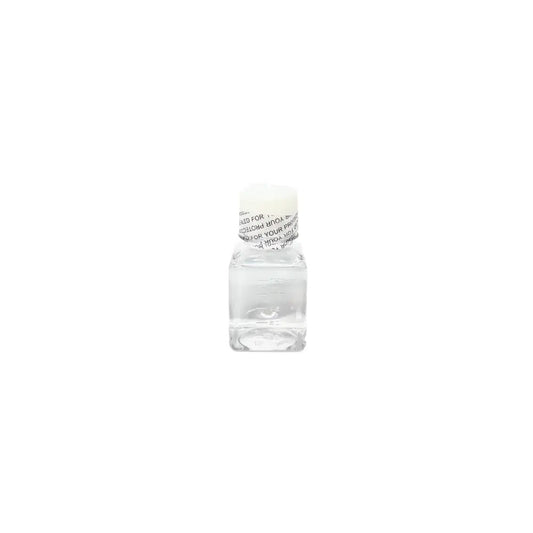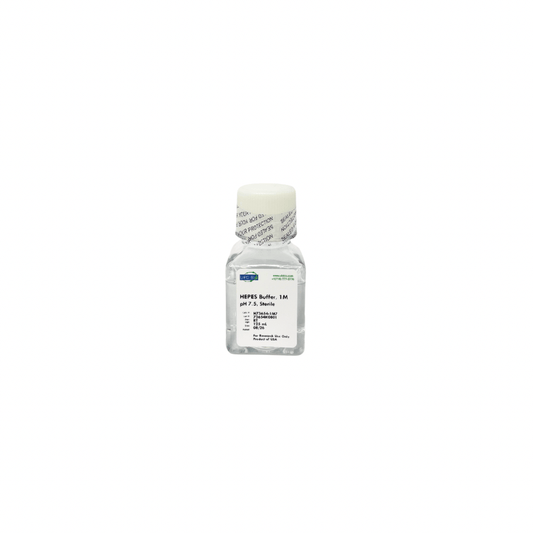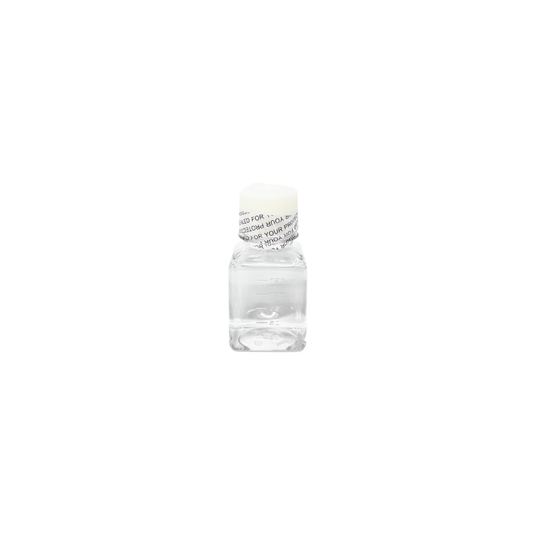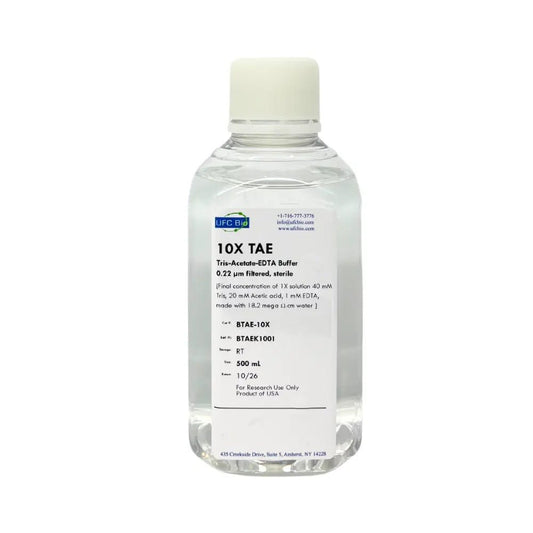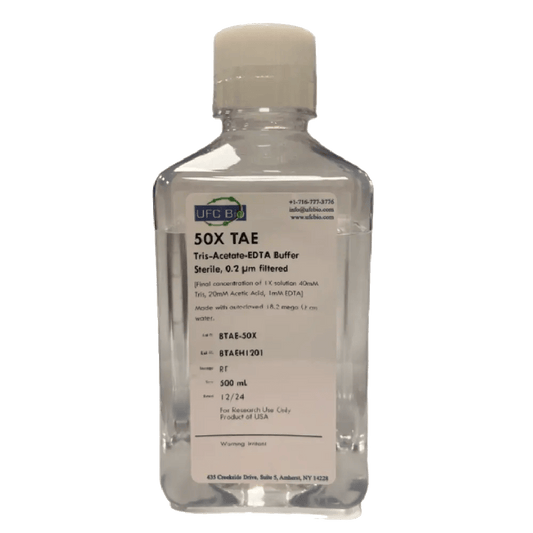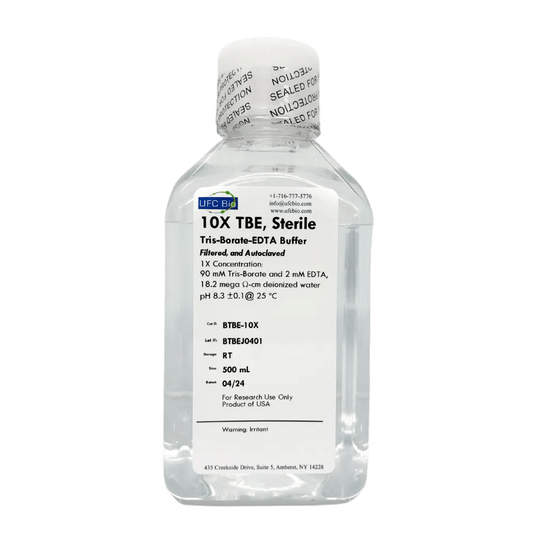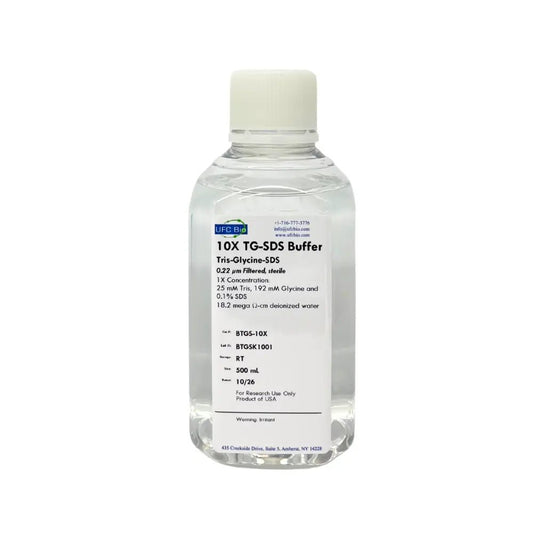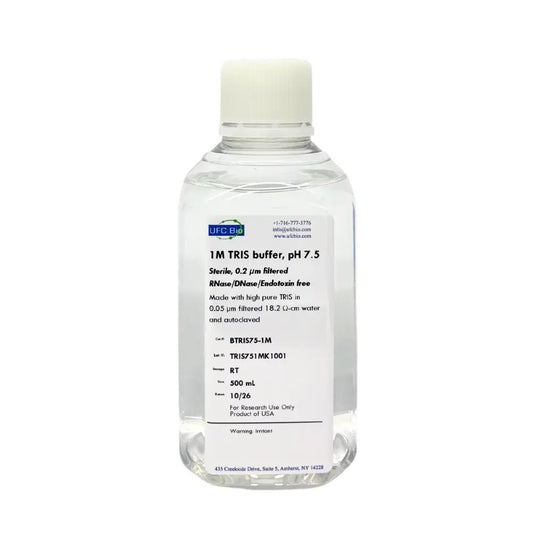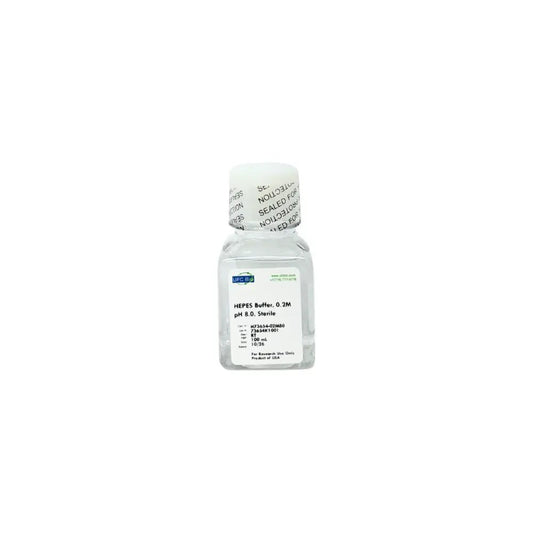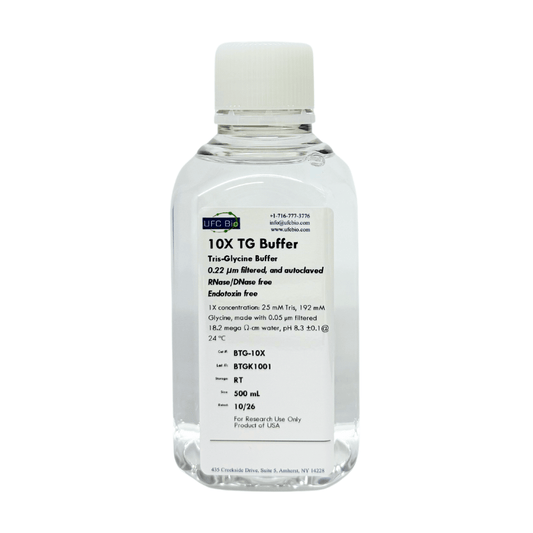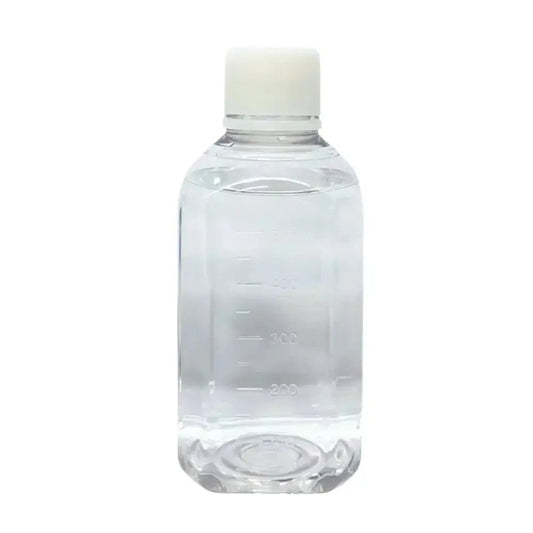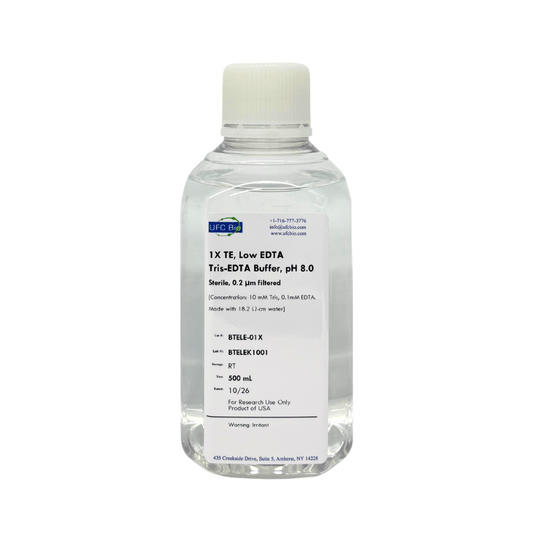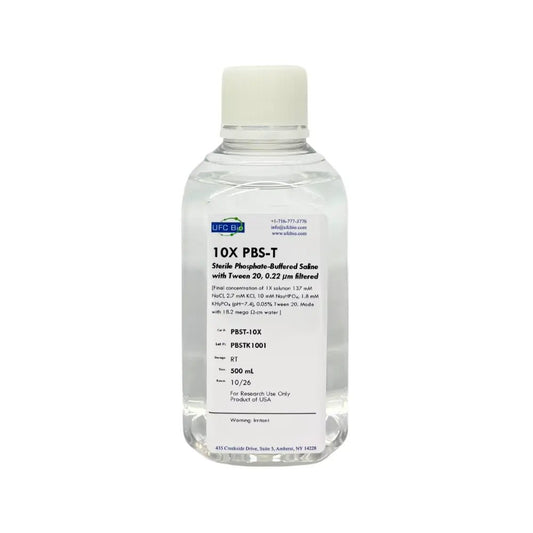-
0.9% Saline Solution
Regular price From $14.00 USDRegular priceUnit price / per -
1X PBS (Phosphate Buffered Saline) - 500 mL
Regular price $19.99 USDRegular priceUnit price / per -
1X TE (Tris-EDTA) Buffer - 500 mL
Regular price $29.99 USDRegular priceUnit price / per -
10X PBS (Phosphate Buffered Saline) - 500 mL
Regular price $29.99 USDRegular priceUnit price / per -
0.5M HEPES Buffer
Regular price From $34.65 USDRegular priceUnit price / per -
20X TBE (Tris Borate EDTA) Buffer - 500 mL
Regular price $39.99 USDRegular priceUnit price / per -
1.0M HEPES Buffer
Regular price From $60.00 USDRegular priceUnit price / per -
10X TAE Buffer (Tris Acetate EDTA) - 500 mL
Regular price $34.99 USDRegular priceUnit price / per -
50X TAE Buffer - Tris Acetate EDTA Buffer - 500 mL
Regular price $40.00 USDRegular priceUnit price / per -
10X TBE Buffer (Tris Borate EDTA) - 500 mL
Regular price $35.00 USDRegular priceUnit price / per -
10X TG-SDS Buffer (Tris-Glycine-SDS) - 500 mL
Regular price $34.99 USDRegular priceUnit price / per -
1M Tris Buffer, pH 7.5 - 500 mL
Regular price $35.99 USDRegular priceUnit price / per -
0.2M HEPES Buffer, pH 8.0
Regular price From $54.99 USDRegular priceUnit price / per -
10X Tris-Glycine Buffer - 500mL
Regular price $18.99 USDRegular priceUnit price / per -
TE Buffer, low EDTA, pH 8.0 - 500mL
Regular price $40.00 USDRegular priceUnit price / per -
10X PBS-T (Phosphate Buffered Saline with Tween-20) - 500 mL
Regular price $35.00 USDRegular priceUnit price / per



